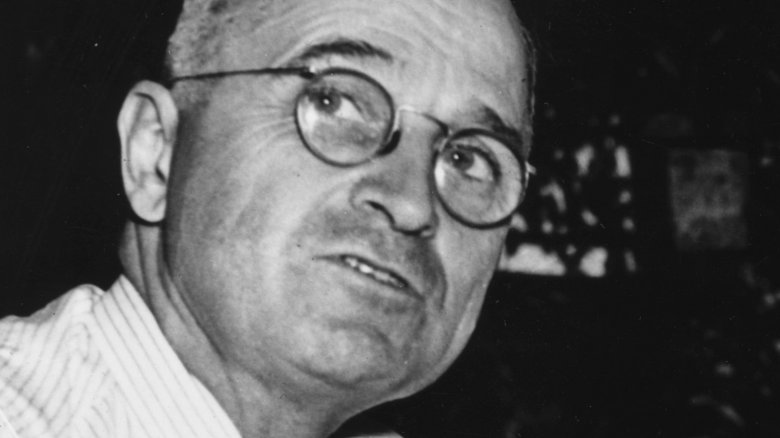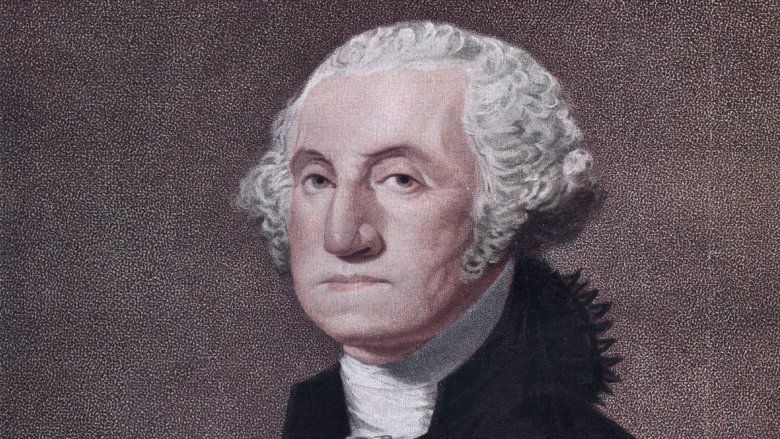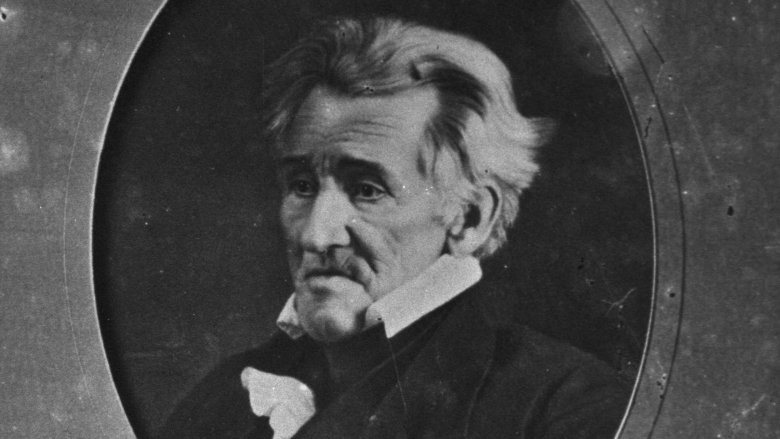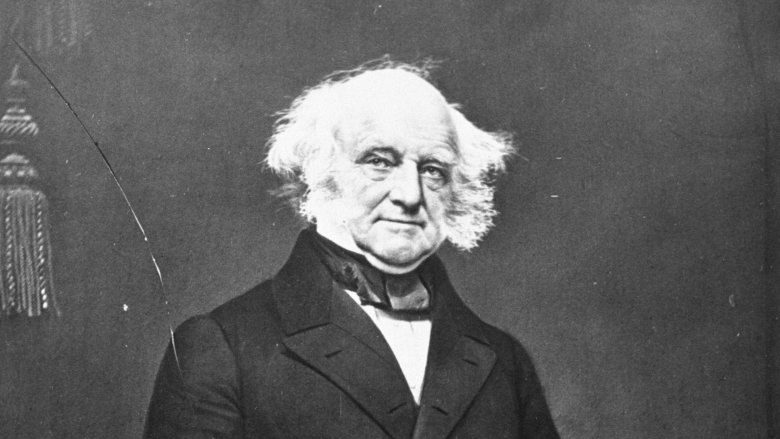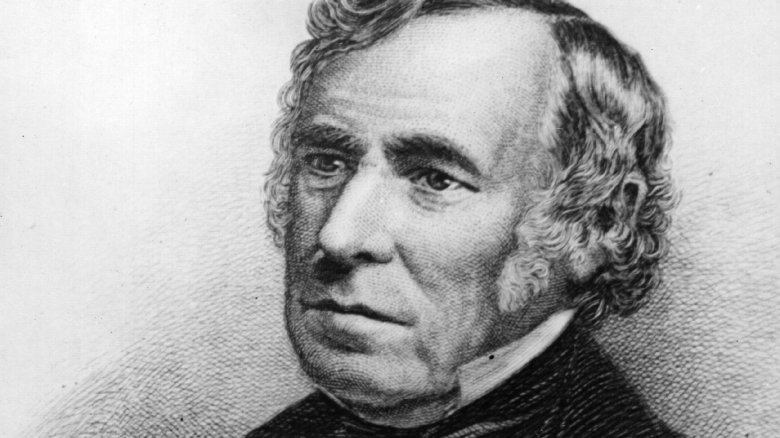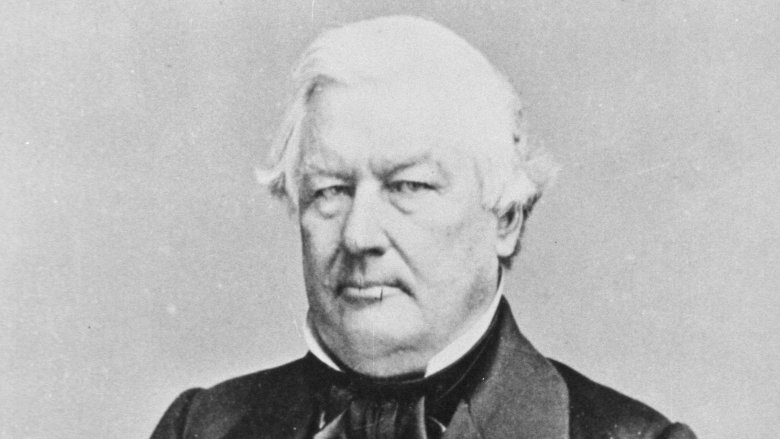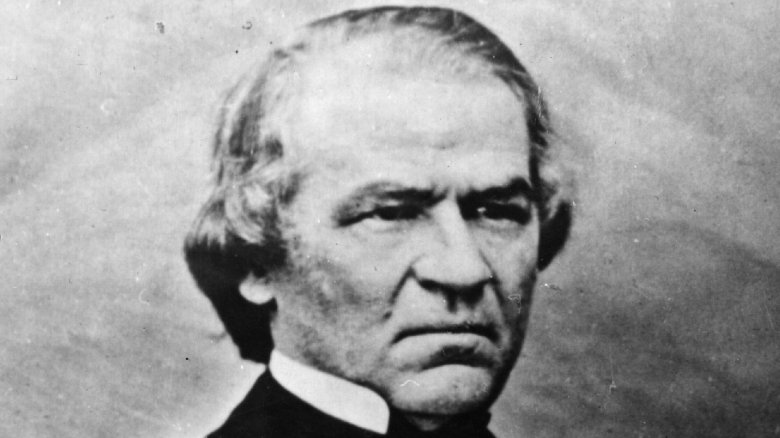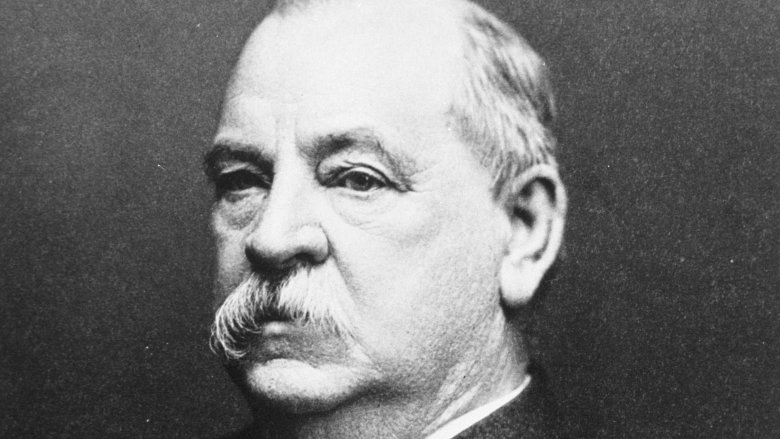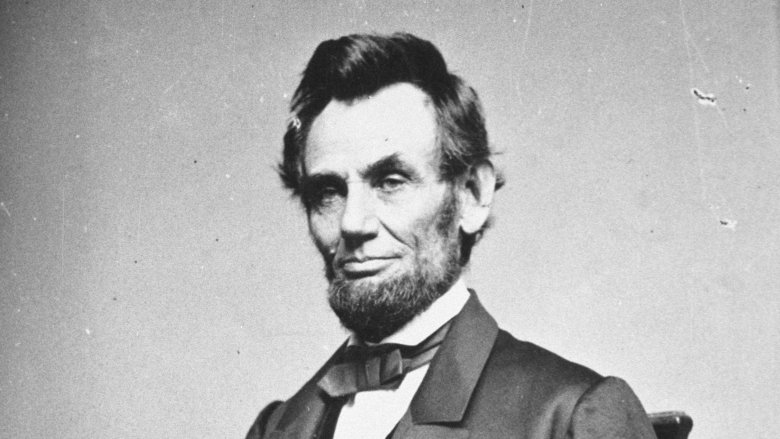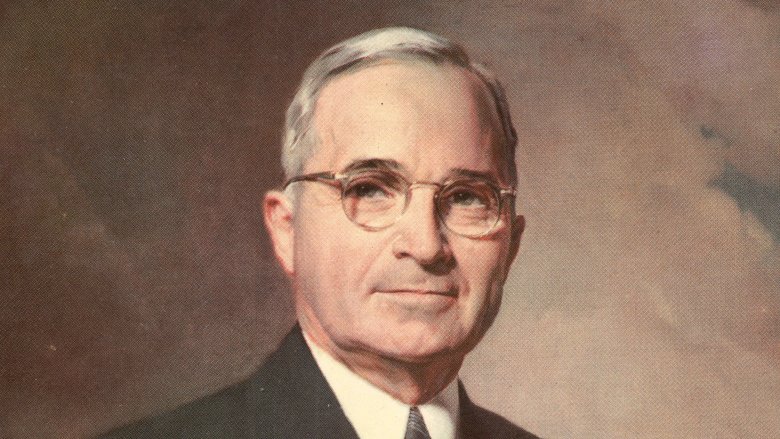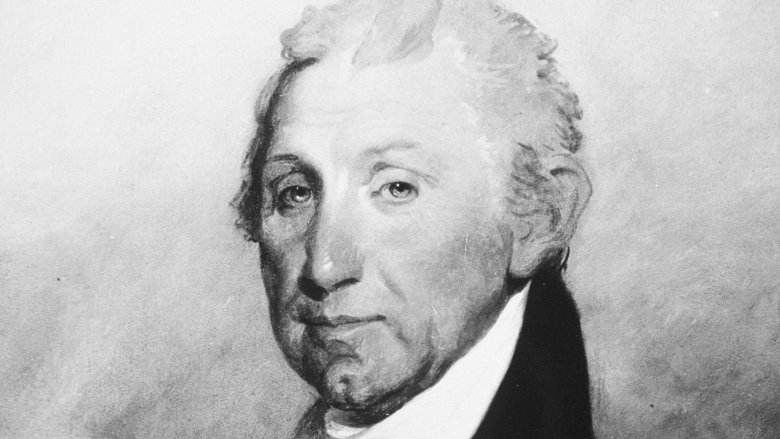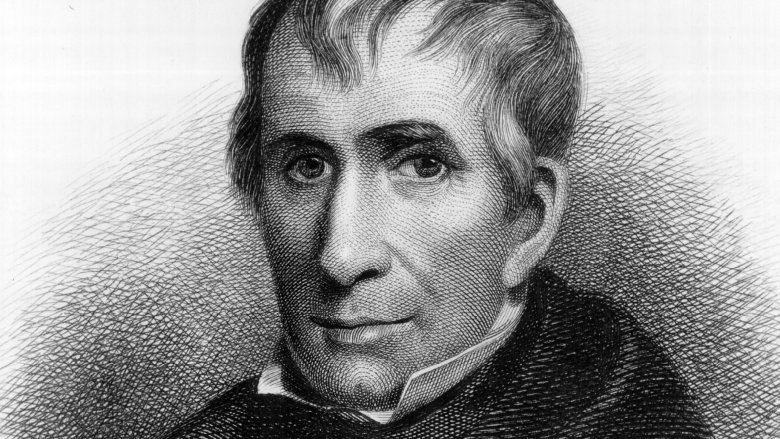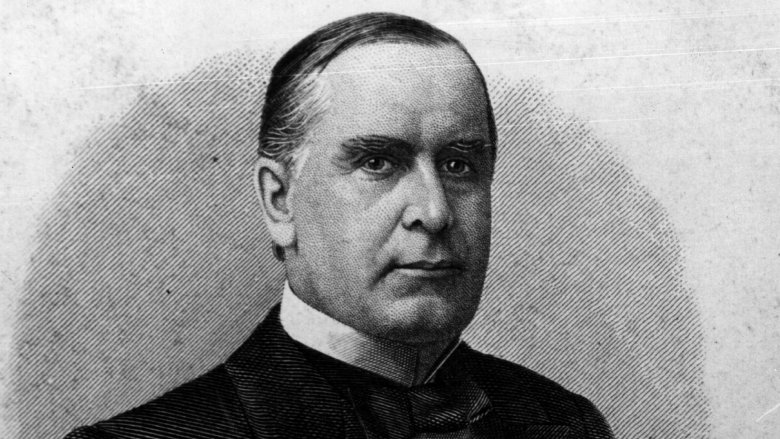12 Presidents Who Never Graduated College
"Anybody can grow up to be president!" That's the story we're fed from the time we're small and incapable of the critical thinking necessary to understand that the booger-eater in class is absolutely not going to be elected to the nation's highest office.
Or is he? It turns out that a not insignificant number of America's POTUSes (POTUSi?) took the Johnny Depp route by skipping the benefits of a higher education on their way into the job they'd eventually be best known for. That's right, the man with the power to unilaterally declare war has, in more than one instance, attended fewer college classes than the IT guy at your office. The crazy part is, that wasn't always a bad thing.
Here are the presidents you can bring up when defending your decision to take a gap year to your parents. Apologies in advance for blowing your mind.
George Washington
Not having student loan officers constantly blowing up your phone must've been pretty swell considering he couldn't tell a lie. Yes, the father of our humble nation was a collegiate non-starter.
With the height of the pedestal where we put George Washington, it's a little bizarre to learn that he was done receiving a formal education after he reached the ripe old age of 15. Consider, for a moment, what you were doing at 15. Now imagine being that age, thinking "good enough," quitting school, and starting an America a few years later.
It turns out that Washington probably would've wound up attending college in England if his old man hadn't passed away when he was 11, which is sort of a fun Sliders universe to imagine. Our Founding Father, coming back from a year abroad with an infinity scarf and a Madonna accent and talking about how different it is not eating tomatoes at breakfast the way he did when he lived overseas.
Andrew Jackson
As people who wound up on money go, our seventh president is ... problematic. Yes, he was a president and a celebrated military officer. JFK was both of those things and he hooked up with Marilyn Monroe, all without any of Andrew Jackson's more colorful qualities like owning slaves or offering cash incentives to anyone who tortured the ones who ran away. Where's Kennedy's 20?
Rather than attend university, Andrew Jackson went straight to the tap for his education. He studied law under a couple of attorneys until he had the knowhow to pass the bar. Before that, he had more than a few years at the School of Hard Knocks studying getting the hickory kicked out of him. His immediate family had died off by his early adulthood, due either to war or the fact that basically anything could kill you back then. Bonus points for the fact that he had a musket ball stuck in his lung until the day he died, which was, counterintuitively, quite a while after the day the musket ball made its way inside him in the first place.
Martin Van Buren
Presidents tend to live remarkable lives and rack up a considerable number of achievements by the time they reach office. At the time of his presidency, Martin Van Buren had already been secretary of state, vice president of the United States, the governor of New York, and the winner of over a dozen "Most Likely To Hold The World Hostage With A Giant Steampunk Drill Based Solely On His Hairdo" competitions.
Martin Van Buren belonged to the group of presidents who studied law as a trade instead of picking it up in class. It might seem backward now, being able to join such a lucrative profession without incurring hundreds of thousands of dollars in loans, but lots of stuff about Van Buren was weird by today's standards. Like did you know he spoke English as a second language? Yeah, he grew up speaking Dutch. He was also a few steps ahead of the game when it came to abolishing slavery, which is always a pleasant surprise when you're reading about an old white guy. Also he married his cousin.
Fun fact: He also ran as a third-party candidate seven years after leaving office, splitting his former party's vote and helping to secure a win for opponent Zachary Taylor.
Zachary Taylor
Zachary Taylor: As president, he wasn't remarkable. Then again, he didn't have much of a chance to be. We'll get to that.
Taylor's childhood was spent on his family's Kentucky farm. Schools were few and far between, so his mom had the job of pumping him full of literacy. He had the advantage of some tutoring, but the siren call of shooting British people with muskets sort of got in the way of any plans for a higher education. Taylor enlisted in the army in 1808, which keen-eyed observers will note was just four years before the War of 1812.
Taylor made a name for himself as a military man and ran for president a few decades later. His platform: being pretty vague about his beliefs and hoping that voters would fill in the blanks. That and the fact that Martin Van Buren split the opposition vote carried Taylor into office, before an ouchy stomach carried him right back out a year and a half later.
Nobody's positive about what killed Zachary Taylor. All we really know is that he'd attended a fruit and milk party (it's exactly what it sounds like and it doesn't sound like fun) five days earlier and then came down with a bad case of the tummy aches and keeled over. As people go, he was elected president, which is quite an accomplishment. As presidents go, he got diarrhea and died, which is not.
Millard Fillmore
There are many routes to the presidency, and "I was vice president when the president ate some bad fruit and died" is among the least dignified.
Growing up poor, Millard Fillmore didn't have a lot of opportunities to get good and properly book-learned. Historians tell us he was an avid reader who was largely self-taught. He quit several apprenticeships in pursuit of bigger and better things and wound up studying law after a few false starts.
Law practice begat a Congressional career, which in turn led to the vice presidency. Fillmore served under Zachary Taylor, a president who seemed largely to have been elected in the hopes of a quiet, uneventful four years in the executive branch. Taylor's presidency got quieter than most when he died of stomach problems a year and change into his first term, and Fillmore took the throne.
History does not look kindly on the presidency of Millard Fillmore. He kept the Fugitive Slave Act going strong, which Southerners felt was too lenient and Northerners found disgusting. By the end of his tenure, Fillmore's political party was disbanded, the country was well on its way to the Civil War, and the path was irrevocably laid for Bruce Tinsley to write two and a half decades of marginally funny Mallard Fillmore comics.
Andrew Johnson
Plenty of presidents never attended college. Andrew Johnson had them beat: He never went to school at all. He grew up the kind of destitute that most people only ever read about. His dad died when he was 3, and his mom was a laundress, which is old-timey talk for "human washing machine."
Johnson had the great big bummer of a job of filling in for Abraham Lincoln after his assassination. He'd only been Lincoln's vice president for a little over a month at the time of Lincoln's death, replacing the president's first-term vice president, Hannibal Hamlin, with the hope that his Southern sensibilities would bring a sense of unity to the nation.
Smash cut to "but other than that Mrs. Lincoln, how did you like the play?" and Johnson served a contentious and difficult term as president. His tenure was marked by impeachment and a near-miss at being removed from office. Today, he is remembered mostly as the president that drunk people accidentally mistake for Andrew Jackson.
Grover Cleveland
Grover Cleveland is known for three things. He was the only president to serve two non-consecutive terms, he oversaw an economic depression that was within spitting distance of being the Great one, and he had a peach of a mustache. Also he shares a first name with a Muppet. So four things.
Cleveland's plans for school were interrupted by the death of his father, and he wound up studying under attorneys at a New York law firm until he was ready to pass the bar exam. He ended up as the assistant D.A. to the district attorney of Erie County and dodged Civil War service by paying somebody $50 to go in his place. By his early 30s, he was the county sheriff. He nabbed mayor of Buffalo at 44 and governor of New York the following year.
Two years after that, Cleveland was elected the 22nd president of the United States. Some by-the-numbers racism and occasional uncharacteristically pro-Native American politics later, he was defeated in his run for a second term by Benjamin Harrison. He celebritied his way back into office in the next election.
Abraham Lincoln
Is there a joke to be made here about Abe Lincoln needing a college education like he needed another hole in the head? There is, but it's in bad taste.
Lincoln was another president whose life's trajectory was changed by an early tragedy. When he was 9, his mother died of, no kidding, milk sickness, a type of poisoning people used to get when their cows ate the wrong plants. The old days were brutal. The gap left in the family dynamic meant more work for young Abe, who apparently hated the manual labor and may have focused on educating himself to avoid doing chores. If that's not the story of an American hero, what is?
In all, Lincoln estimated that he spent 12 months in school total. He taught himself, and even bragged about it, claiming to have "studied with nobody" before being admitted to the Illinois bar in his mid-20s. His second term in office remains one of the most compelling "what if?" stories in American history.
Harry S. Truman
Well, he gave it the old college try. Harry S. Truman had a year of college under his belt before he left school. He went back to night classes at the Kansas City Law School later in life but decided to skip the whole "get your law degree" step and just be elected judge instead.
Serving as a Jackson County judge in the 1920s put Truman's political career on the right track. From there, he became a senator for Missouri, then the vice president and, not long after, the president.
In office from 1945 until 1953, Truman was the most recent U.S. president not to receive a college degree. Coming into the vice presidency during the fourth and final term of Franklin Roosevelt's tenure, he was considered a less liberal alternative to previous vice president Henry Wallace. Two months and change into the term, FDR passed away as the result of a brain hemorrhage, leaving Truman in charge. A few months later, Truman would bring a horrifying end the war in the Pacific by ordering the atomic bombing of Hiroshima and Nagasaki.
James Monroe
Yes, the man responsible for the Monroe Doctrine was also ill-educated enough that he wouldn't have ever studied it in school.
James Monroe attended an institution of higher learning, but he bounced before it could take. After a year and a half of college, Monroe dropped out to fight in the Revolutionary War, which kind of makes the time your uncle dropped out to follow KISS on tour seem even sadder than it already was. Monroe was hailed as a hero by George Washington after suffering a gruesome injury in battle, which probably didn't hurt when he ran for president in 1816. The addition of Mississippi, Illinois, and Alabama later, he ran unopposed for a second term, during which he tacked Maine and Missouri onto the scoreboard.
Fun fact: Monroe almost dueled Alexander Hamilton over some TMZ-worthy scandal buzz. Luckily, the two were talked out of it by a more level-headed ... Aaron Burr.
William Henry Harrison
It's not easy to say whether William Henry Harrison would've learned to wear a jacket if he'd stayed in college. There are some things we'll just never know.
Out of all of the ill-educated presidents, Harrison was probably the best educated. He was tutored at home into his teens, and even attended classes at the Hampden-Sydney College in Virginia for three years before his dad pulled him out.
There's not much to know about William Henry Harrison's presidency because there wasn't much of William Henry Harrison's presidency to know about. Old WHH got into a scuffle with some pneumonia (or, possibly, septic shock on account of Washington D.C. essentially being an open sewer at that point) and died a month into his first term. His presidency is remembered as not only the shortest, but also the first that ended prematurely due to the death of the commander in chief.
Also, because of Harrison's service at the Battle of Tippecanoe, people called him "Old Tippecanoe." So that's something.
William McKinley
William McKinley was sort of a fascinating dude. Yes, in his later years he had the same body type as a thumb, and yes, he was assassinated when he refused to listen to his security detail and stop hanging out with his fans. But he was also surprisingly chill to his murderer and he's on the $500 bill.
William McKinley, like many other presidents on this list, studied law under a lawyer. He actually attended law school, but quit after less than a year and passed the bar exam on his own. A successful career as an attorney and a couple of winning runs for Congress and the governorship of Ohio later, he was on his way to great big wildly popular presidential things.
Sadly, McKinley's largely beloved time in office was cut short when he was shot in the gut by an honest-to-God anarchist at the Pan-American Exposition in Buffalo on August 31, 1901. McKinley instructed his security detail to call off the mob that was attacking his killer in a move hailed by historians as "basically the chillest."
